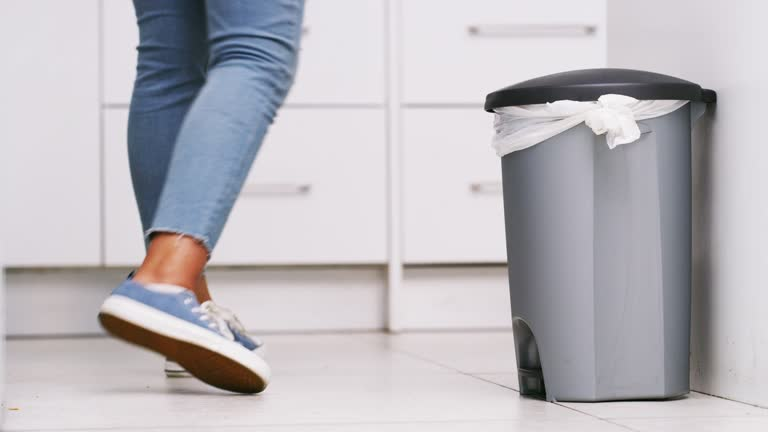Cleaning a garbage disposal is crucial to eliminating stinky odors that can permeate your kitchen. In this article, we will explore effective methods to clean your garbage disposal, ensuring it remains odor-free and functioning efficiently.
Why Your Garbage Disposal Smells

Over time, food particles and grease can accumulate in your garbage disposal, leading to unpleasant smells. The moist environment inside the disposal can cause these particles to decompose, releasing foul odors. Regular maintenance is key to preventing and eliminating these odors effectively.
Materials You Will Need
Before you start cleaning your garbage disposal, gather the following materials:
- Dish soap
- Baking soda
- White vinegar
- Ice cubes
- Rock salt
- Old toothbrush or scrubbing brush
- Lemon or lime
These common household items will help you tackle grime and odor efficiently.
Step-by-Step Cleaning Process
Follow these steps to clean your garbage disposal:
Step 1: Power Off and Safety First
Always start by turning off the power to your garbage disposal to ensure your safety. You can either unplug it or switch off the corresponding circuit breaker. Keep your hands and utensils away from the disposal while cleaning to avoid any accidents.
Step 2: Clean the Splash Guard
The splash guard, also known as the rubber flaps, can harbor food residue. Remove or lift the splash guard and use an old toothbrush or scrubbing brush paired with dish soap to clean it thoroughly. Rinse well to ensure all debris and soap are washed away.
Step 3: Use Ice and Salt
Ice cubes and rock salt can effectively dislodge grime and sharpen the disposal blades. Pour a cup of rock salt and a few ice cubes into the disposal. Turn on the cold water and run the disposal for a minute. The salt acts as an abrasive cleaner, while the ice sharpens the blades and helps push out trapped debris.
Step 4: Baking Soda and Vinegar
This natural cleaning combo is excellent for eliminating odors and breaking down residue. Pour half a cup of baking soda into the disposal, followed by a cup of white vinegar. Allow the mixture to fizz and sit for about 10 minutes before rinsing with hot water.
Step 5: Freshen with Citrus
Citrus fruits like lemon or lime can provide a fresh scent while also cleaning the disposal. Cut a lemon or lime into small wedges and run them through the disposal with cold water. The citric acid helps to break down grime, and the fresh scent masks any lingering odors.
Conclusion
Keeping your garbage disposal clean is essential for a fresh-smelling kitchen and a well-functioning appliance. Regular maintenance using simple household items can prevent stinky odors and prolong the life of your disposal. By following these steps, you can effectively eliminate unpleasant smells and maintain a hygienic kitchen environment.
FAQs
1. How often should I clean my garbage disposal?
It’s recommended to clean your garbage disposal at least once a week to prevent the buildup of food particles and odors.
2. Can I use bleach to clean my garbage disposal?
It’s best to avoid using bleach as it can damage the disposal’s components and pipes. Natural cleaning agents like baking soda and vinegar are safer alternatives.
3. What should I avoid putting down my garbage disposal?
Avoid putting fibrous foods (like celery), starchy foods (like potato peels), grease, and non-food items down the disposal as they can cause blockages and damage.
4. Why does my garbage disposal still smell after cleaning?
Persistent odors may be due to deeper issues within the plumbing. If odors linger, consider professional plumbing services to inspect for potential blockages or buildup.
5. Can I use commercial cleaning products for my garbage disposal?
Yes, commercial garbage disposal cleaners are available and can be effective. However, natural cleaning methods are typically safer and environmentally friendly.

